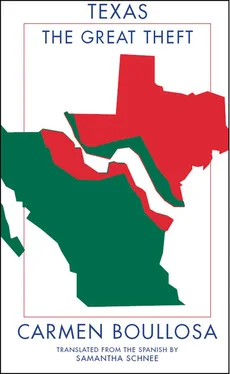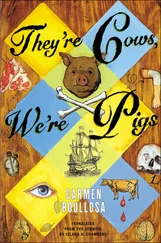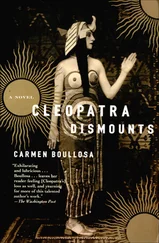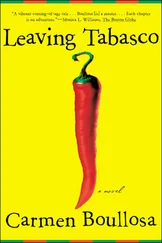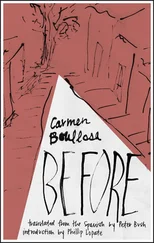Miss Lace scurries across the Market Square and half way down the next block, where she sees Judge Gold coming out of his office, heading to the Town Hall just across the street.
It’s important to explain that Judge Gold is not a judge, despite his name; he’s in the business of stuffing his wallet. His métier is money. Who knows how he got his name.
“Nepomuceno’s goose is cooked,” is what Judge Gold tells Miss Lace, because he’s just received another report, and with both bits of news in mind he continues on his way to the Town Hall, from which Sabas and Refugio, Nepomuceno’s half-brothers by Doña Estefanía’s previous husband, are exiting angrily.
Sabas and Refugio are proper gentlemen from the best of the best families of the region. Wagging tongues can’t understand how Doña Estefanía could produce these two jewels, and then the roughneck Nepomuceno, who doesn’t even know how to read. Others claim it’s a blatant lie that Nepumuceno is illiterate and consider him the most elegant and best-dressed of the three, with the manners of a prince.
Sabas and Refugio owe Judge Gold a lot of money. They’ve just been to testify before Judge White (who is a real judge, though not necessarily an honest one); the Mexicans in town call him “Whatshisname” instead of Judge. Nepomuceno preceded them but they waited until their messenger, Nat, told them that their half-brother had left so that they wouldn’t run into him. Nat was the one who reported to Judge Gold that the legal proceedings would be delayed “until further notice”—bad news for Sabas and Refugio, who want a ruling soon so they can get the payoff promised by Stealman. It’s even worse news for Nepomuceno.
A shot is heard. No one is particularly alarmed by the sound — for every 500 head of livestock you need 50 gunmen to guard them, and each of those gunmen will pass through Bruneville at some point; each of them are capable of acts of lawlessness and all sorts of violence. Shots are nothing.
Judge Gold hurls the sheriff’s words at Sabas and Refugio, thinking to himself, Now they won’t be able to pay me for who knows how long, but at least I have the pleasure of delivering bad news. But he immediately feels uncomfortable: the taunt was unnecessary, and he has nothing to gain from it. That’s Judge Gold for you, callous impulses and heartfelt regrets.
Nat, overhearing this interchange, rushes off to the Market Square to check out what’s happening with Nepomuceno and Shears.
Sabas and Refugio would have celebrated the humiliation of their mother’s golden boy but they can’t because the news has been delivered by Judge Gold with intent to wound. So they continue on their way as if nothing of consequence has been said.
Glevack, arriving from Mrs. Big’s Café, is about to approach Sabas and Refugio but stops abruptly and turns — he sees his chance to speak with Judge Gold.
A few seconds later Olga, a laundress who occasionally works for Doña Estefanía, approaches the brothers. She wants to tell them the news about Shears in hopes of patching things up with them but they’re annoyed with her because they’ve heard she’s told Doña Estefanía they don’t have her best interests at heart. Of course Olga was right, and everyone knows it (even Doña Estefanía, even Sabas and Refugio), but was it really necessary to spread such poisonous gossip?
The brothers ignore Olga and keep walking side-by-side, each wrapped in his own thoughts, each unaware the other is counting the seconds, the minutes, the hours till they can go to Stealman’s house, where they’ll discuss the Shears-Nepomuceno affair at length, each thinking to himself, We have to make it clear there’s a world of difference between us and that good-for-nothing , and worrying that if they go they run the risk of being snubbed. Damn Nepomuceno, that troublemaker. He had to stir things up today, just when we’re invited over there.
Olga tries Judge Gold. He too ignores her. Desperate for attention, she runs to tell Glevack, who is trying to catch up with Judge Gold, but Glevack forges ahead as if no one is there.
Glevack is in a bad mood, though for no good reason, since he is a primary beneficiary of the fraud against Doña Estefanía, which Nepomuceno is trying to reverse by legal means, the reason for his recent visit to the court. Indeed, it was Glevack who sweet-talked Doña Estefanía into making the deal with the gringos, knowing full well they would take advantage of her and that he would get part of the profit. Glevack would love to be the one to insult Nepomuceno in the Market Square, to call him a worthless nobody in front of everyone. He’s called him worse, the man who was his friend and associate.
Once Glevack had nearly got him thrown in jail. The two of them had hired a mule driver to steal back some livestock that Stealman had rustled from them. When the mule driver turned up dead on the steps of the Town Hall, people blamed Glevack and Nepomuceno. Glevack testified he had nothing to do with the murder, that it was all Nepomuceno’s doing. He gave lots of details and made up others, even saying that it was Nepomuceno who had robbed the mail.
Glevack should be relishing the insult, but it’s not in his nature to enjoy anything. And his perpetual foul humor has deepened because Judge Gold won’t stop and listen to him, and because he suspects that Sabas and Refugio are turning against him. He feels beset by problems.
Olga’s got her own worries. She’s no longer eighteen, twice that in fact. She’s lost her bloom. No one, not even Glevack, looks at her like they used to. When women lose their glow they’re like ghosts to men; out on the street, no one turns to admire them. Some feel liberated by this lack of interest, but others, like Olga, won’t stand for it, they’ll do anything for attention. So Olga crosses the main road, Elizabeth Street, walks to the intersection of Charles Street, and knocks on Minister Fear’s door.
It’s not yet a month since Olga helped unpack the trousseau of the minister’s new wife, Eleonor.
Although Eleonor is a recent bride, she is no spring chicken either: she’s past twenty. Her husband, Minister Fear, is forty-five; he had been a widower for two years when he placed an advertisement for a new wife. The ad, which appeared in papers in Tucson, California, and New York, stated in succinct English:
LONELY WIDOWER SEEKS WIFE TO ACCOMPANY METHODIST MINISTER ON THE SOUTHERN FRONTIER AND ASSIST WITH HIS WORK. PLEASE RESPOND TO LEE FEAR IN BRUNEVILLE, TEXAS.
Olga knocks impatiently on the Fears’ door a second time, so hard that the Smiths’ door pops open (their house is adjacent, on the corner of James, which runs parallel to Elizabeth), and out comes the lovely Moonbeam, an Asinai Indian (some call them the Tejas Indians, though the gringos call them Hasinai, part of the Caddo tribe). The Smiths bought her for next to nothing a few years back, before it became fashionable to have Indians as servants. Now they would have to pay twice as much. She’d be a bargain at any price: she’s beautiful and hard-working with a pleasant manner about her, though sometimes she gets distracted.
Moonbeam steps into the street. A second later, Eleonor Fear opens her door with an expression of befuddlement. Eleonor doesn’t speak a word of Spanish, but Olga makes herself understood. First, she offers her services — washing, cleaning, cooking — whatever the Fears might need. Eleonor declines amicably. Minister Fear arrives (curious to see who is at the door) as does Moonbeam (the Smiths’ young slave is always interested in gossip), and Olga tells them about the incident, using gestures to make herself understood: a five-pointed star for the sheriff, a violin and a lasso for Lázaro, but Nepomuceno’s name alone is enough, everyone knows who Don Nepomuceno is.
Читать дальше
